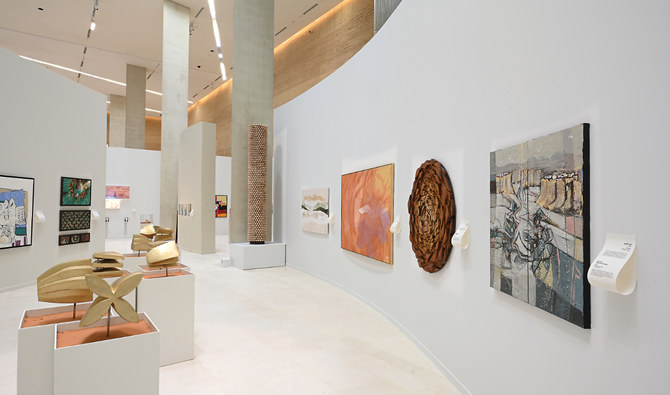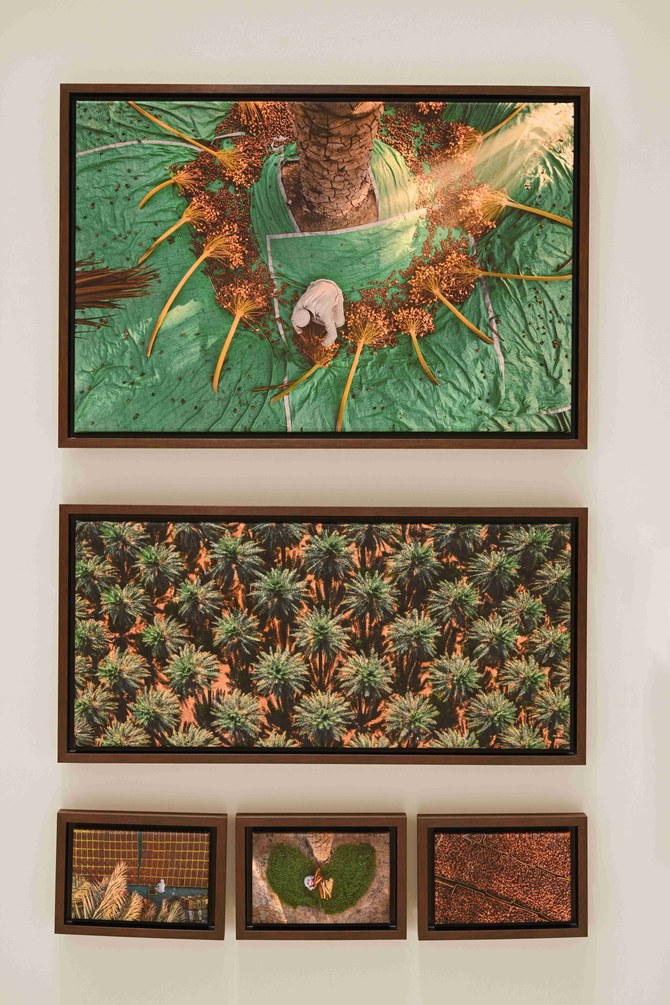RIYADH: A key part of Saudi Arabia’s visionary social and economic plan has been to build a creative economy.
Public and private institutions are spearheading the Kingdom’s move away from reliance on hydrocarbons by encouraging the country’s majority youth population to engage in creative activities.
Among them is the Saudi Aramco-sponsored King Abdulaziz Center for World Culture (Ithra) — meaning enrichment in Arabic. The term reflects the company’s stated vision to create a cultural institution for, “social progress through education and cross-cultural exchange.”
In 2008, on Aramco’s 75th anniversary, the late King Abdulaziz spoke of his wish to establish a world-class center that would present the arts, culture, science, and technology to inspire creativity and push the country into a new knowledge economy.
The monarch’s son, as King Abdullah, progressed his father’s vision and in 2016 the late rulers’ ambitions came to fruition.
Situated in Dhahran on the site of the first commercial Saudi oil field, Ithra opened in 2016. Since then, it has built on Saudi Aramco’s long patronage of the arts — the Saudi petroleum and natural gas company for decades staged art exhibitions on its premises — to promote creative thinking.
The center aims to encourage aspiring young artists in Saud Arabia and throughout the Arab world through its exhibitions, the most recent concentrated on sustainability and the natural environment.
The “From Earth” exhibition, which opened on Sept. 26, features work by emerging and established Saudi artists, while “Net Zero” has been displaying pieces by two Saudi and 17 international artists since Sept. 16.
The former shows a collection of 32 specially commissioned items including paintings, digital and sound art, installations, and works incorporating physical elements from the country’s natural landscape.
The exhibition was staged in collaboration with the Dammam Culture and Arts Association to further encourage artistic development and diversity in the Kingdom.
Ithra’s head of museums, Farah Abushullaih, told Arab News that as well as serving as a platform for art production, the center had become a hub for empowering talents.
She said: “It promotes art and culture in Saudi Arabia, builds bridges of communication with emerging and professional artists, and in addition provides a base for communication, and establishes common grounds for future partnerships, which contributes to the development of the art sector as a whole.”
While the works on display in “Net Zero” express the spirit of sustainability, those featured in “From Earth” focus specifically on Saudi artists’ relationship to their natural heritage and their love for their land, depicting a range of tangible and intangible perspectives.
Yousef Al-Harbi, director of Dammam Culture and Arts Association, said: “The exhibition carries many concepts, symbols, and connotations that have influential and motivational aspects.
“Earth is the concept, idea, and symbol, which artists choose to explore as it encourages them to passionately excel creatively, as well as pay tribute to their own roots to progress forward.
“The artists use the earth as an inspiration to promote a sense of belonging to the land and its details which are reflected within, and which they carry wherever they go.”
One piece, “The Sound of the Earth” by Moath Al-Hazmi, aims to capture the sound that emanates from diverse natural landscapes in the Kingdom by placing a recording in designated boxes, with descriptive aluminium plates, that visitors can listen to with headphones.
The plate “Earth Sound,” for example, has recordings of the sound of the sea at Saihat in Al-Qatif.
Al-Hazmi told Arab News: “My work deals with the sound fingerprints of various elements and this work concerns the sound fingerprints of terrains throughout Saudi Arabia by recording their sounds at different times to reflect the nature of a specific place.
“Many of us live in large cities and perhaps some have never been able to travel to the eastern and western parts of the Arabian Peninsula. It was from here that the question arose about the sounds of these places.
“The work is an invitation to deal with the land — a medium we are all familiar with — a bit like street painting but using the earth in a new and innovative way by making audio content from five selected Saudi terrains,” he said.
Saudi artist Bader Al-Essa uses photography, video, writing, and installation to explore and document the history of people on the Arabian Peninsula.
His exhibit, “Maqam,” features two black-and-white photographs reflecting the mihrab or Islamic praying niche in the wall of a mosque or religious school. Shade and shadow are incorporated to explore the abstract historical depth of the architectural structure, and its importance to society and to the land.
“‘Maqam’ embodies an image of the old mihrabs in the Najd region, representing the deep spiritual connection of local communities with their environment through the use of sustainable natural components to move to the worlds of supplication and closeness to God,” Al-Essa told Arab News.
Other elements of the artist’s photographs include a prayer mat and the triangle motifs found in old architectural designs to evoke a feeling of connection and familiarity.
Mohammed Al-Faraj, from Al-Ahsa, and Zahra Al-Gamdi, are taking part in “Net Zero” with works based around Saudi nature and heritage to raise awareness of environmental issues.
Abushullaih said: “We want to build a new generation of artists. Hopefully with the newcomers that are being exhibited for the first time here in Ithra, some of them are established already, there’s a nice blend between emerging and established artists.
“The journey has been rewarding and inspiring as has the community development and education surrounding such shows.”































